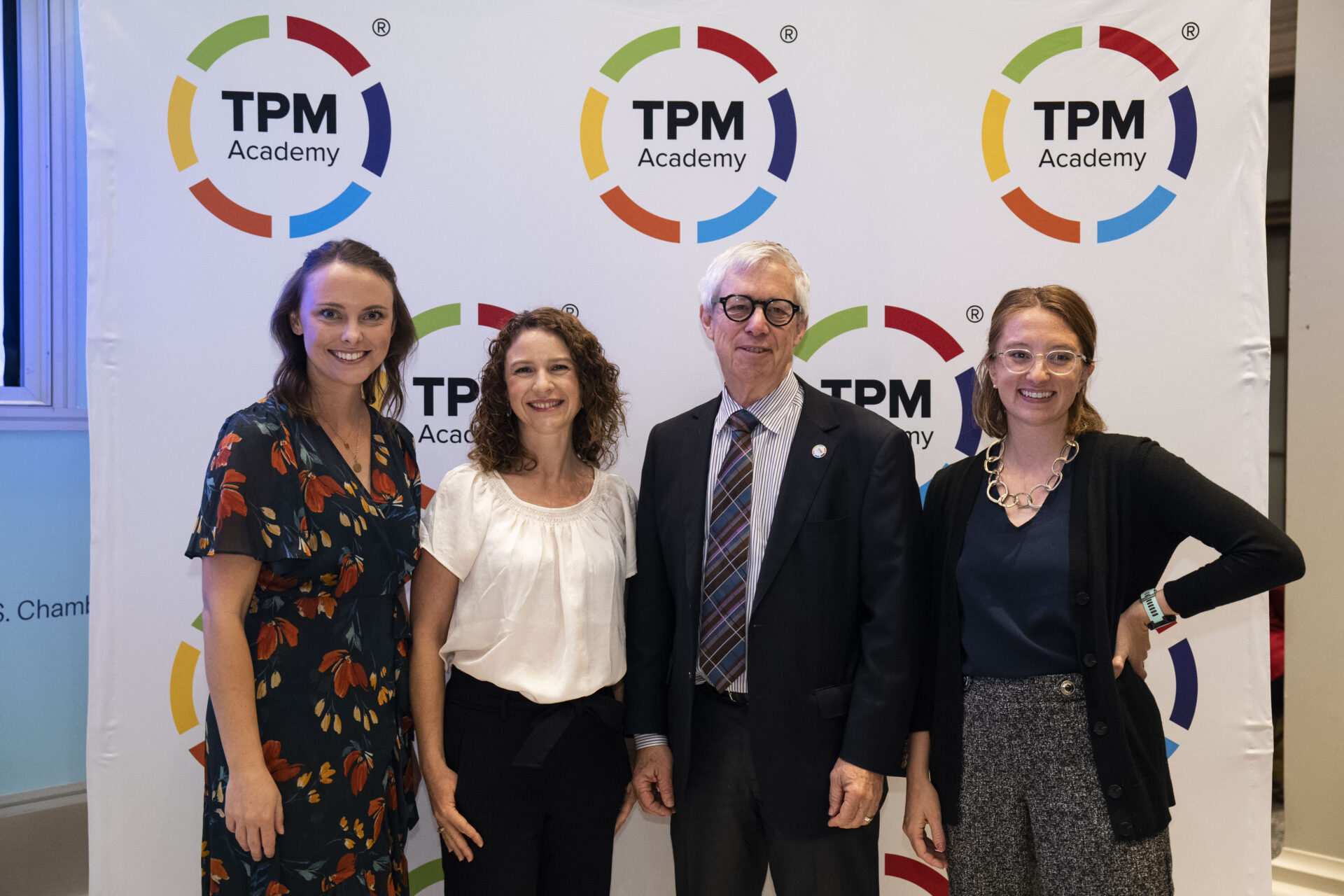To fill talent gaps, regional employers vet training curriculum aligned to industry needs
Together with more than 80 industry representatives, San Diego Regional EDC is proud to announce Advancing San Diego’s newest Verified Programs of 2024: 28 education programs from 15 different institutions that are best preparing students for jobs in computing, engineering, and business.
These programs earned a three-year verification status through a rigorous evaluation process led by Advancing San Diego, the flagship program of EDC’s Talent Initiatives, which serves to double the production of skilled workers in San Diego while prioritizing historically underrepresented populations in the innovation economy.
San Diego and the nation are grappling with a critical talent supply and demand challenge. Since 2017, San Diego County has experienced a 1.3 percent decline in its working-age population even as jobs have increased by 3.1 percent, intensifying competition for skilled talent. Additionally, 83,000 more jobs now require a bachelor’s degree than in 2016, underscoring the growing demand for advanced training and education alongside skill-based hiring practices.
At the same time, demographic shifts are reshaping the future workforce. More than 70 percent of San Diego’s K-12 students are people of color, a group that has historically faced systemic barriers to accessing high-wage, high-demand careers. These changes present an opportunity—and an imperative—to invest in training programs that equip local, diverse populations for the region’s most in-demand careers. By expanding access to quality post-secondary education and training, the region can build an inclusive talent pipeline that supports both economic growth and equity in San Diego’s innovation economy.
“The numbers are clear; the region cannot fill its talent gaps unless we open doors for more San Diegans. Our Advancing San Diego work is part of the solution—connecting industry to vetted local education programs that they might not yet be recruiting from. This new roster, which includes universities, community colleges, adult schools, and more, offers employers a go-to for sourcing qualified and diverse talent, and arms training programs with the boots-on-the-ground intel needed to shape the curricula of the future,” said Taylor Dunne, Director of Talent Initiatives at San Diego Regional EDC.
How programs are verified
Employers met with and vetted applicants’ curriculum at EDC’s ‘Reaching Tomorrow’s Talent’ event on November 13, which brought together more than 150 businesses, educational programs, and community organizations working to close talent gaps by aligning education with industry needs.
Status as a Verified Program indicates five critical elements:
- Alignment of educational curriculum with industry requisites of necessary hard skills (ex: coding)
- Alignment of educational curriculum with industry requisites of necessary soft skills (ex: problem solving)
- Continuous engagement with industry
- Ability to reach and serve a diverse student population
- Proven history of collaboration along the education continuum and with critical community organizations


By participating in the process, local training programs get an inside look at the most critical skill expectations for students coming out of their programs and begin to explore how those expectations will change as technology and artificial intelligence evolve.
“Poway Adult School is excited be recognized as an Advancing San Diego Verified Program. We believe that further developing industry partnerships, encouraging reflection on learning objectives, and aligning with the needs of local industries will help set our students up for success as they enter the workforce,” said Kathleen Porter, Executive Director of Career Technical, Adult, and Alternative Education at Poway Unified School District.
“By equipping students with the skills needed to thrive, we help them transition successfully into the workforce. EDC’s Talent Demand data is an invaluable tool that allows us to align our programs with the skills students need to launch new careers,” said Elizabeth O’Shea-West, Principal at Vista Adult School.
The 28 programs verified in this round represent more than 79,500 students across San Diego and Imperial Counties, and join a roster of others across key industries including Healthcare, Business, and Life Sciences. Last done in 2020, 10 programs were re-verified while Advancing San Diego welcomed 18 newly verified programs.
hire summer interns at no cost
With the new designation comes the opportunity for students to take advantage of paid work-based learning experiences. In conjunction with the Border Region Talent Pipeline K-16 Collaborative, companies in San Diego and Imperial Counties are invited to apply by February 28, 2025 to host funded computing, engineering, and/or business interns for the summer of 2025, sourced exclusively from the Verified Programs roster. In 2024, 322 interns were placed at 104 local companies, up from 48 interns placed in 2023, and creating an invaluable bridge between education and industry in high-growth, high-wage fields. Learn more and complete the interest form here.
“I was drawn to this internship program because of my commitment to social mobility and reducing socioeconomic gaps. Companies have a pivotal role in building a more equitable future, especially by empowering the next generation of talent. My favorite part about working with the Advancing San Diego interns at ChakraTech has been their contagious enthusiasm and unwavering dedication to the work,” said Ravi Chawla, founder and CEO of ChakraTech, a 2024 summer intern host.
Learn more at advancingSD.org and explore Verified Programs for other industry clusters here.
Verified Programs of BUSINESS
- California State University San Marcos
- Cuyamaca College
- MiraCosta College
- National University
- Palomar College
- Poway Adult School
- San Diego State university
- San Diego Community College District – College of Continuing Education
- UC San Diego Division of Extended Studies
- UC San Diego Rady School of Management
- Vista Adult School
Verified Programs of Computing & ENGINEERING
- California Institute of Applied Technology
- Cuyamaca College (Engineering)
- National Foundation for Autism Research
- National University
- San Diego City College
- San diego MiraMar College




